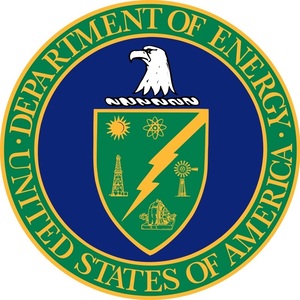DOE to fund feedstock monitoring, carbon storage technology




December 23, 2019
BY U.S. Department of Energy
On Dec. 19, the U.S. Department of Energy’s Advanced Research Projects Agency-Energy (ARPA-E) announced up to $20 million in funding to develop technologies to quantify feedstock-related emissions at the field level.
The Systems for Monitoring and Analytics for Renewable Transportation Fuels from Agricultural Resources and Management (SMARTFARM) program seeks to develop monitoring technologies to quantify feedstock-related emissions and enable new market incentives for efficiency in feedstock production and carbon management.
“Biofuel production is a key U.S. energy asset, and new technologies to increase the monitoring capabilities of our nation’s agriculture industry will continue to position us as a leader in this space,” said U.S. Secretary of Energy Dan Brouillette. “SMARTFARM will enhance the monitoring technologies that feedstock producers need to participate in future carbon management programs, laying the groundwork for cleaner, more efficient biofuel production.”
Advertisement
Advertisement
Achieving greater carbon reductions across the biofuel supply chain requires that feedstock producers adopt technologies and practices that improve yield, drive down production associated emissions, and enhance carbon sequestration in soil. Crop-based biofuels have the potential to supply up to 5% of U.S. energy demand, and developing technologies to advance the biofuel supply chain towards carbon negativity – sequestering more carbon than the production process emits—would greatly increase biofuels’ benefits to the economy and the environment.
SMARTFARM projects will work to bridge the data gap in the biofuel supply chain by funding technologies that can replace national averages and emissions factors for feedstock-related emissions with field-level estimates. These technologies will work to reliably, accurately, and cost-effectively quantify feedstock production lifecycle emissions at the field level (i.e. scalable to >80 acres), and if successful, will catalyze new market incentives for efficiency in feedstock production and carbon management, thereby reducing annual U.S. emissions.
Advertisement
Advertisement
Of the $20 million available through the SMARTFARM program, a portion of funding will be made specifically available for qualifying small business applicants under ARPA-E’s Small Business Innovation Research program.
To learn more about ARPA-E’s SMARTFARM program, click HERE and to apply for funding, visit ARPA-E eXCHANGE.
Related Stories
The U.S. Department of Energy Bioenergy Technologies Office (BETO) announced up to $23 million in funding to support research and development (R&D) of domestic chemicals and fuels from biomass and waste resources.
The U.S. DOE has announced its intent to issue funding to support high-impact research and development (R&D) projects in two priority areas: sustainable propane and renewable chemicals and algal system cultivation and preprocessing.
Sens. Sherrod Brown, D-Ohio, and Pete Ricketts, R-Neb., in August introduced the Renewable Chemicals Act, a bill that aims to create a tax credit to support the production of biobased chemicals.
The Chemical Catalysis for Bioenergy Consortium, a consortium of the U.S. DOE’s Bioenergy Technologies Office, has launched an effort that aims to gather community input on the development of new biomass processing facilities.
USDA on March 8 celebrated the second annual National Biobased Products Day, a celebration to raise public awareness of biobased products, their benefits and their contributions to the U.S. economy and rural communities.
Upcoming Events










